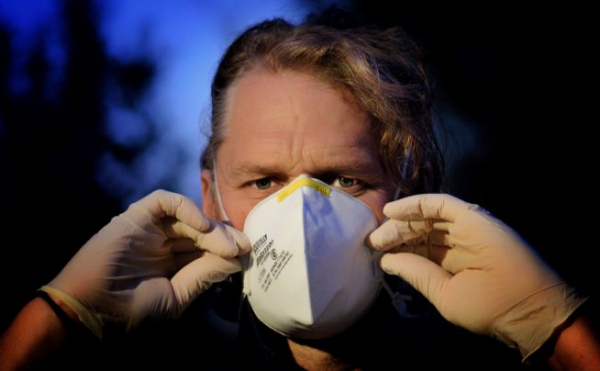
New CDC guidelines no longer require those who have been vaccinated against COVID-19 to undergo quarantine, but maintain that they need to continue wearing masks, masks, social distancing, avoiding crowds, and poorly ventilated spaces.
The Centers for Disease Control and Prevention (CDC) on Wednesday released a new set of COVID-19 guidelines specifically for those who are fully vaccinated against the coronavirus. NBC News reported that as per the new guidelines, those who have completed their COVID-19 vaccine will no longer need to undergo a quarantine if they have been exposed to the coronavirus.
Quarantine continues to be required for healthy people who may have been exposed to the virus, during which individuals who were exposed need to stay isolated for up to two weeks to monitor if they develop symptoms and protect those around them from getting it in the chance that they are infected. However, quarantining is no longer needed for those who have received their full doses of the COVID-19 vaccine.
As per CDC, to be "fully vaccinated" to protect against COVID-19 means that at least two weeks have passed since an individual was administered with the last dose of a two-dose vaccine or the one dose of the single-dose vaccine. Quarantine will no longer be required "within three months of having received their last doses as long as they do not develop any symptoms." In addition, the CDC also requires those who have been "fully vaccinated" to keep wearing masks, social distancing, avoiding crowds and poorly ventilated spaces.
According to The Blaze, the CDC still urges following safety precautions as the efficacy of the vaccine's protection against COVID-19 remains uncertain beyond the three-month post-vaccination period. According to The New York Times, the number of antibodies and killer T cells that fight the infection may decrease months after the vaccination, so it's important to continue wearing masks, social distancing, avoiding crowds and poorly ventilated spaces.
With the continued implementation of health guidelines, some may think that there is no need for the COVID-19 vaccine to be administered. Wearing masks, social distancing, avoiding crowds and poorly ventilated spaces will still be required of the public regardless if a person is "fully vaccinated" or not, which begs the question, is being vaccinated against COVID-19 a must?
A recent survey by the Associated Press-NORC Center for Public Affairs Research found that while 67% have intentions of getting vaccinated against COVID-19, about 23% of Republicans are strongly opposed to it. Forbes reported that in a sample size of 1,055, 21% of Republicans will "probably" not get the COVID-19 vaccine once it's available for them. Overall, 21% of respondents believe they "don't need a COVID-19 vaccine."
A Gallup poll conducted between January 25 to 31 revealed that 51% of Republicans are dissatisfied with the current vaccination process, while 25% of all Americans say they have "concerns about the rushed timeline" of the development of the COVID-19 vaccine, thus making them reluctant to get vaccinated. As of this week, 27 million Americans have fallen victim to COVID-19, with over 468,000 deaths. Only 3% of the American population has been "fully vaccinated" thus far.

















